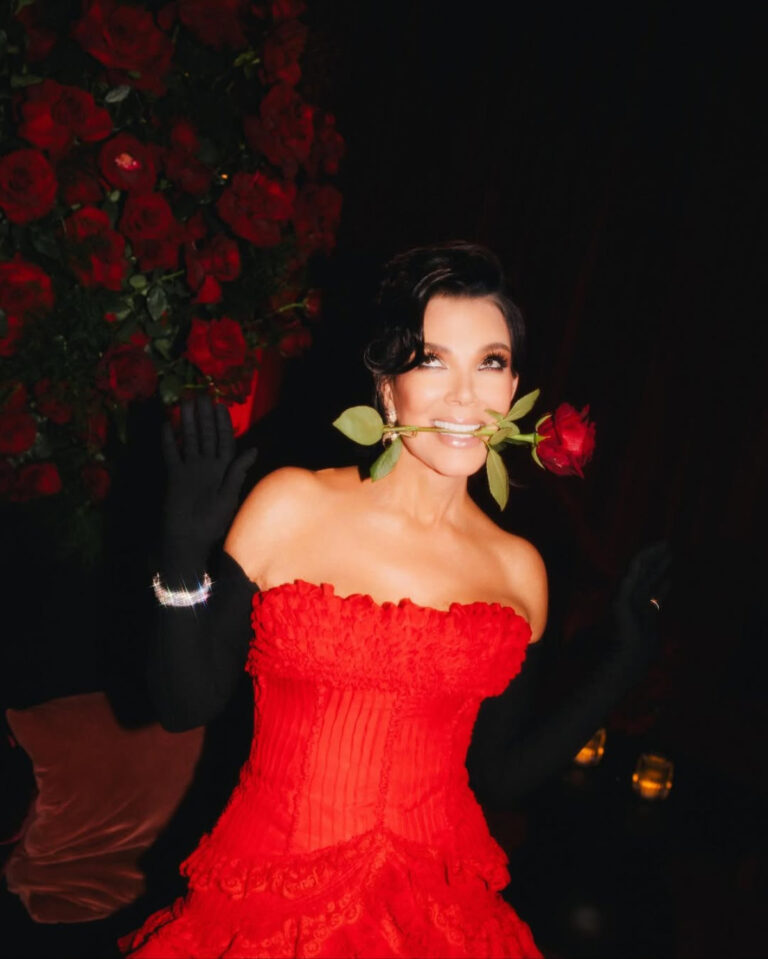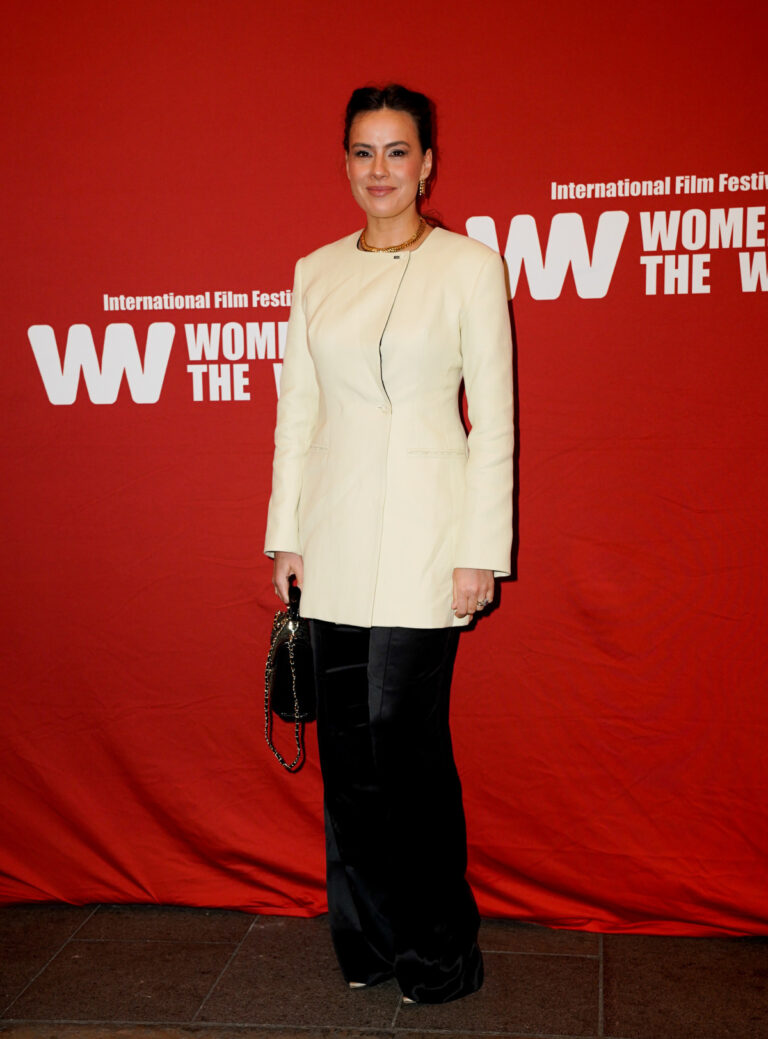The film is about the experience of occupation and relationships during the war.
Zhanna Ozirna's film “Honeymoon” is currently being shown in Ukrainian cinemas.
This is the story of Taras and Olya, a couple who wake up to explosions outside their window on February 24, 2022. The main characters find themselves under occupation — while they stay in their apartment, the film explores their relationship, fears, and the path to true understanding of each other.
“Honeymoon” premiered last year at the Venice Film Festival. The film was recently awarded the Albert Wiederspiel Prize at the Hamburg International Film Festival, and its creators were also awarded the Oleksandr Dovzhenko State Prize of Ukraine.
We spoke with Iryna Nirsheya and Roman Lutsky, the actors who played Olya and Taras in the film. They talked about their characters, the importance of showing different war experiences, and the reaction of foreign audiences to “Honeymoon.”
The film tells the story of one family under occupation. What was your experience of the first days of full-scale war like – was it different from what we see in the film?
Roman: Every Ukrainian focused on the people and things that were most important to them on February 24. It was a morning that clearly separated the important from the unimportant.
And emotionally, everyone probably experienced something in the range from apathy to total internal mobilization. I had something like the latter.
Iryna: On the evening of February 23, I was getting a haircut and suddenly felt very anxious — I asked the hairdresser not to finish it, called a taxi, returned home, packed my anxious backpack, and went to my close friends' house to spend time with them. Foreign journalists we knew warned us about the high probability of a full-scale war starting that very night.
It was the period when director Maksym Nakonechny and I completed the production of his film “Vision of a Butterfly” about the Russian-Ukrainian war. We were deeply immersed in this topic, we also went through the Revolution of Dignity together, spent many frosty nights on the Maidan. On the night of February 24, we lay in bed, could not sleep, and talked about Ukraine, the state, and our destinies. At 4:30 a.m. we heard the first rockets and explosions in Kyiv — it was very scary. We locked ourselves in the bathroom: Max started smoking cigarettes one after another, and I was arguing because there was nothing to breathe. Then I called my brother, my mother in Odessa: she did not believe that the war had started, I persuaded her to go to shelter.
Then we went down to the Lukyanivska metro station. I remember a bunch of people, their animals, sleeping bags on the cement floor, whispers, chaos — it felt like our lives had changed forever.
The film crew I worked with decided to stay in the city and film what was happening. So we watched Kyiv as it was being emptied, with lines at pharmacies and shops, checkpoints on the roads, people doing things, transporting, sending, carrying, and also collecting money for ammunition for the military and humanitarian aid.
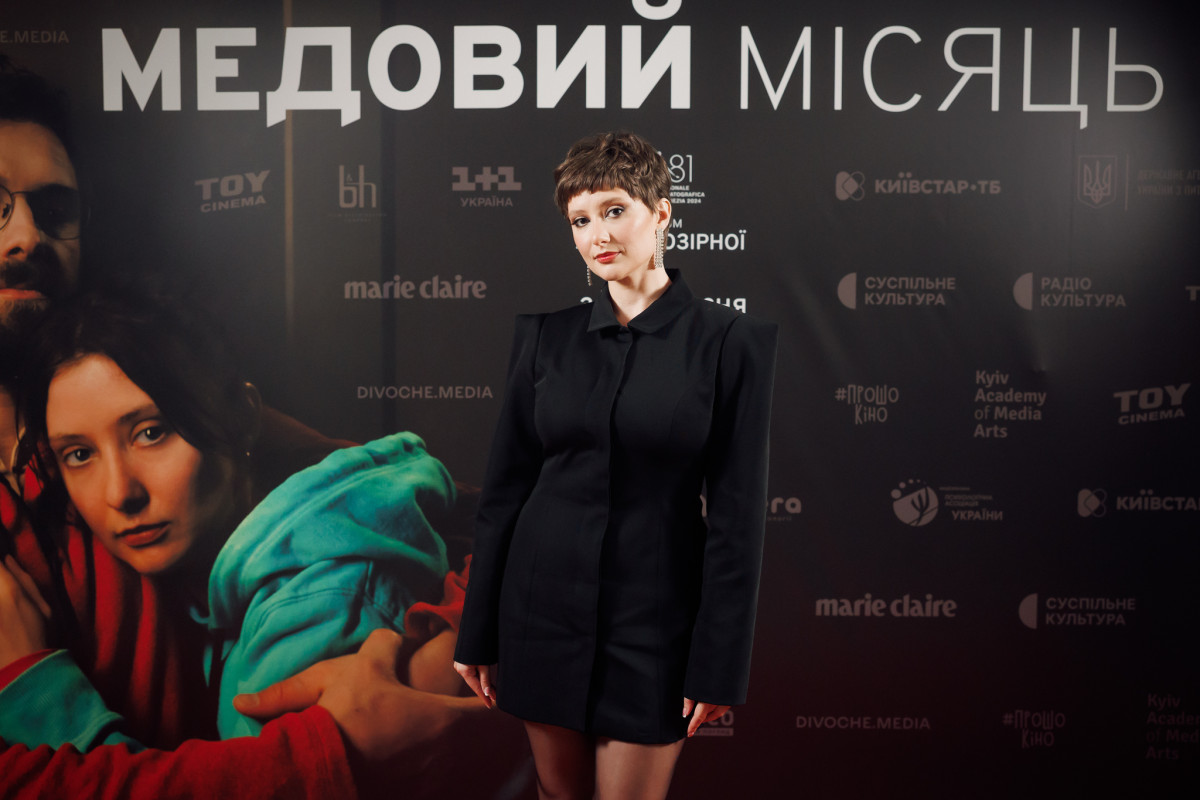
Iryna Nirsha
I remember the continuous shelling, explosions, nights in the corridor. I somehow froze from the fear that we would find ourselves under occupation. I was working on a film about Russian captivity, so I understood very well what could happen in such a situation. Suddenly, I was offered to help with logistics for the professional military who were defending Kyiv. I moved to their base and worked so much that I didn't have time to read the news – it helped me mobilize. I felt that I was finally useful next to these people. I also realized how much we, as civilians, neglected to prepare for combat operations while we had the time.
Overall, this experience changed me, I saw true human dignity, courage, action, and struggle.
Compared to other ways of covering war and people's reactions to it, the film can seem quite calm, even slow. Why do you think it's important to have this format to portray the events of war?
Iryna: Real life is not about sensation or constant bright emotions. Even during a disaster or war, there is routine and a slow pace.
People also don't illustrate everything on their faces – for example, they may think one thing, but express something completely different with their appearance and actions.
So far, Ukrainian actors in films often illustrate everything with their faces, which is why their acting becomes flat. In my opinion, this is due to a lack of film education. On the other hand, theatrical methods in cinema do not work — sometimes they are even harmful.
My main task in “Honeymoon” is to show a portrait of a real, voluminous person, not to try to please the viewer and not to be a “soft, sweet bun.” In this film, I have less than perfect diction, bruises under my eyes, zero foundation, jeans with hanging knees and a terrible gray stretched sweater. However, this is a breath of reality, not artificiality.
I think it's important for us to remain human and empathetic during war, not to compare experiences and pain, but to accept each other, to look for common ground. Perhaps “Honeymoon” will help with that.
Roman: For an audience that has not encountered war, it is important to show exactly one of the possible states of people and their interaction.
What happens on the outside has always been in the news and filmed in films. And personal stories of internal struggle are something that is no less interesting. That is why such films are needed.
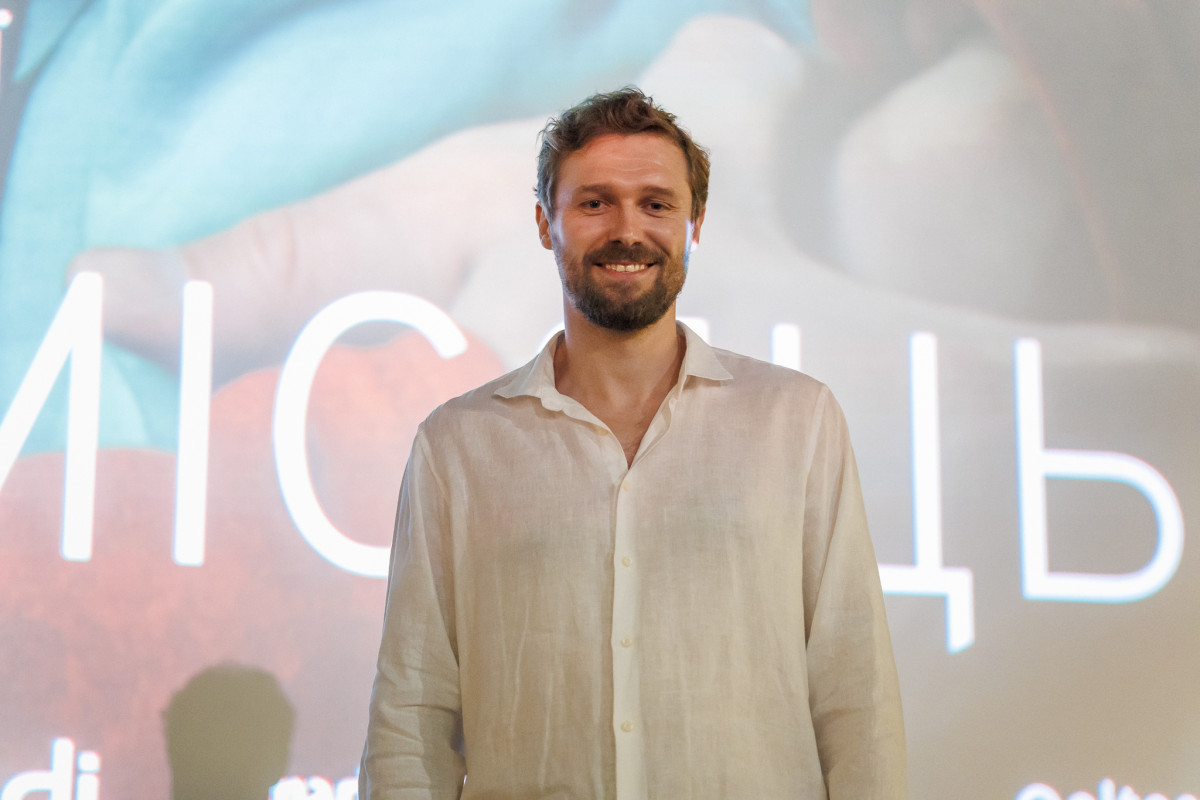
Roman Lutsky
How would you describe the characters you play in the film?
Roman: They are living people. They may not always act logically. However, in such conditions, it is quite natural.
Iryna: I was worried that people would get bored looking at my face in a locked apartment for 80 minutes.
It was a bit of a challenge because I knew there was nothing to hide in the film. If there was an interesting deep movement in my inner world, then people would be interested in watching and listening to me whispering as I crawled around the apartment. But if not, it would be a failure.
There's a lot of me in the character of Ola: I told scenes from my life that could be used in the script, I improvised, I even convinced Zhanna to take snails instead of fish. In the end, I even suggested a name for the character.
I am also an artist – I understand her motivations, ambitions and experiences. For a while, nothing existed for me except art: I was engaged in laboratory avant-garde theater abroad, so people outside the artistic bubble seemed completely uninteresting to me. Now I think it is escapism, and I do not accept artists who are not interested in life around them and are not ready to face reality. They often feel that they are chosen and special, and they have a somehow condescending attitude towards life. Now it only makes me smile.
Like my heroine, the importance of art during wartime is completely unclear to me. I am searching for an answer to this question.
How would you describe each other's characters? How did you perceive them throughout the entire process of working on the film?
Iryna: Taras is an intellectual. He is also a specialist in psychotherapy and knows how to empathize with people, but he has problems with sincerely expressing his own emotions, he hides a little behind words. It seems to me that for Olya he is a partner who can organize her chaos, give peace and space, and understand her ambitions.
They are interested primarily on an intellectual level: talking about philosophy, history, and books. Their couple has respect and a genuine interest in each other's intellect.
Roman: Olya and Taras remained mature people in the circumstances of the war, because they were able to save each other.
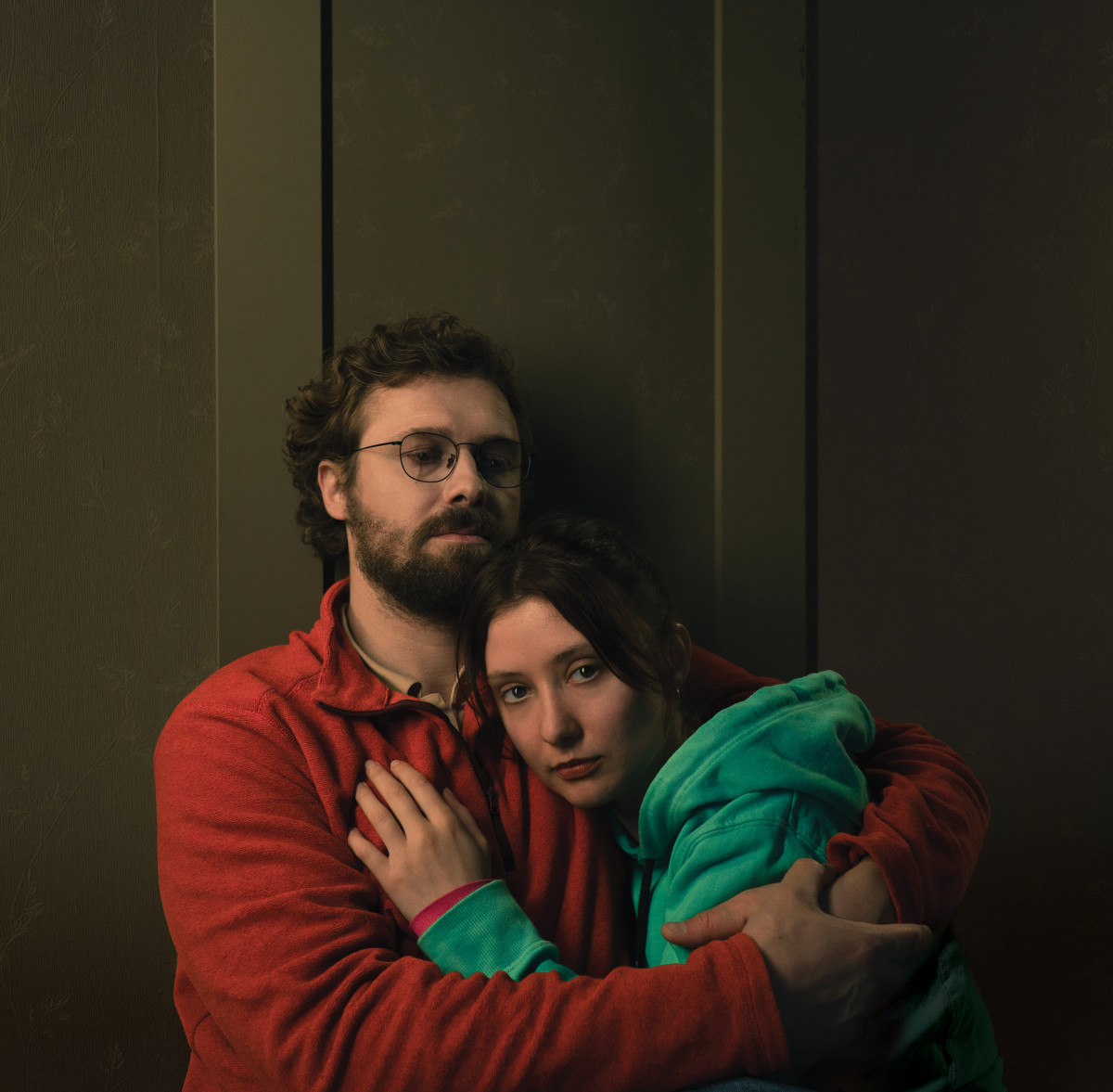
In the film, your characters show a beautiful, balanced relationship with each other, despite some minor conflicts. How did you manage to build that on set?
Roman: Preparation before the start of the shooting period was critically important. We entered this process consciously.
It was confidence and “ground under your feet” that helped in the search and analysis and during the filming. We were a team. Although we argued, because working on a film is a living process. It would be worse if it didn't exist.
Iryna: First of all, we are professional actors, so we were able to come together and play what we need. We need love, so we play love and look for ways to make our partner love us — even if it's difficult.
At the casting stage, we didn't have a script yet, we were just improvising. Then the director asked us to write 20 points about why our characters love each other. I did everything, came to the rehearsal, and Roman asked me to also write 20 points about why his character loves the heroine. At first, I was even offended, but I wrote that too. It was important to me to make a good film.
Secondly, Roma and I are very different, from different bubbles and mentalities. We spent quite a long time looking for a way to come together psychologically and play a couple. For example, I like it when it's quiet in the dressing room, when I can be alone, concentrate on what I'm going to do on set, meditate. On the other hand, Roma is energetic, noisy, loves to joke, provoke. We argued fiercely about the film during rehearsals.
Roma had a birthday during rehearsals — and after these quarrels we celebrated it very nicely. Outside of work, there were no problems between us. However, in a professional context, no one was going to give in to anyone in terms of energy. I think it was even better for the film, because we kept each other in good shape.
Based on the example of the film and this couple's story, what lessons have you learned about how to maintain relationships during such critical periods?
Iryna: We need to communicate with each other, even if inside we feel helpless and empty. Sometimes you can't say anything, but just be with the person, hug them.
You are responsible for the lives of the people who are around you and love you. Therefore, you need to think about them too when making decisions in the face of a threat. Because human life is more important than the material world.
Roman: Each of us, Ukrainians, has already learned so much during the full-scale invasion that I just want to say: you need to have a lot of endurance!
While you were preparing for the film, working on it, did you learn anything new about people's experiences during the war? What was perhaps a revelation for you?
Roman: Not only during preparation, but also in general after a full-scale invasion – in stressful situations, people can manifest themselves unexpectedly. The strong suddenly become weak, and vice versa. In this context, Volodymyr Vakulenko's diary “I am transforming…” came to mind.
Iryna: Our film is a work of fiction based on real events. I can only talk about my work – why I believe I had the right to play this theme, and what I wanted to express and what emotions I wanted to evoke in the viewer.
I will tell you about a little research that became the basis for my preparation for the role. Immediately after the de-occupation of the Kyiv region, I went to Bucha, Irpin, Borodyanka, because I knew that I had to see everything with my own eyes, talk to people, and create my own archive. I understood that in the future I might play in films about these events, so I did not want to embody images from my imagination on the screen. I had to face reality in order to have the right to talk about it later.
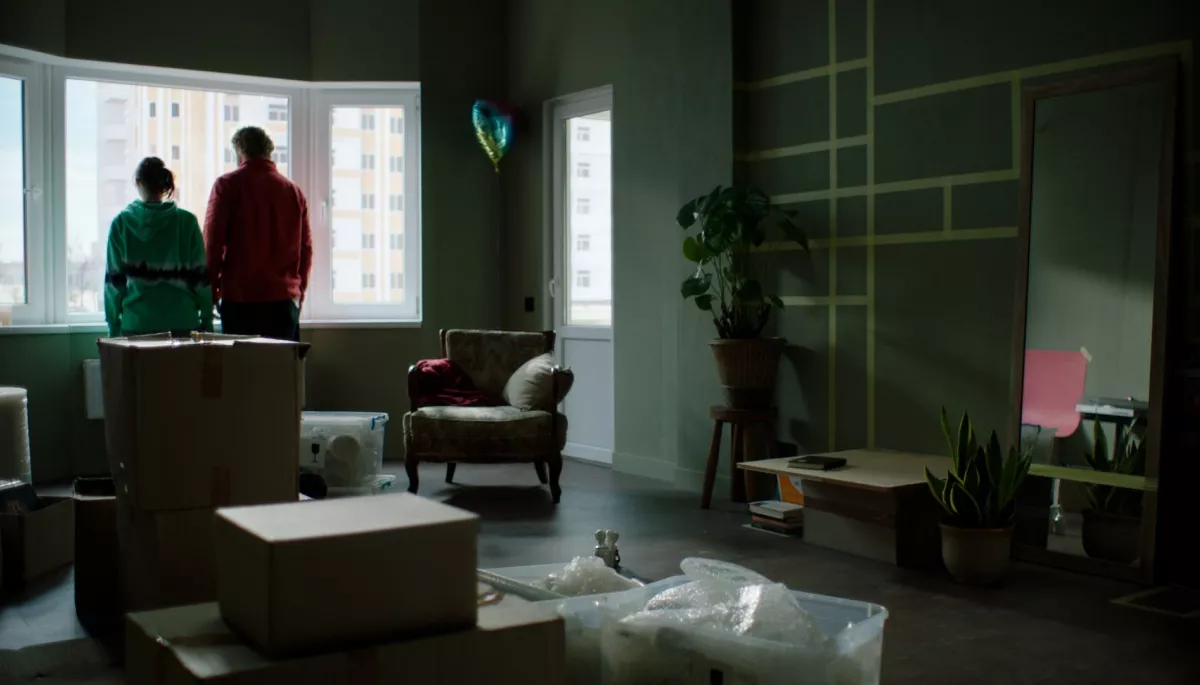
I saw broken doors, robbed apartments, shot cars, burned houses, mass graves, tortured people, and trucks with bodies that arrived at the cemetery every half hour. I talked to a guy who was unloading bodies and spoke very quietly with a glassy look, a mother in despair who was looking for her son's body in black bags, a woman who heard her daughter's screams for several days in a collapsed basement and could do nothing because the Russians would not let them dismantle the rubble of a residential building from an air bomb explosion.
Everywhere there were panel houses with bomb holes, burnt tanks and people – I don't even know how to explain it – like scared, defenseless children. I've only experienced something like this once in my life – when I arrived in a bright suit at an orphanage with an entertainment program. The children were running around and looking at me with huge sad eyes – they just wanted to hug me and call me mom.
After these trips to the deoccupied territories, I became very ill, I lay with a temperature of 40, I felt like my body was burning from the pain of these people. In “Honeymoon” I tried to play with eyes with dilated pupils.
What was the premiere of the film abroad and in Ukraine like? What did you remember most from these events?
Iryna: I saw the film for the first time in Venice with a full audience of foreigners and cried the entire time. There was a tense silence in the audience, then long applause, but it seemed to me that I would not be able to go on stage in an evening dress with heels and bright makeup to tell Europeans in expensive suits about the occupation and the war. I wanted to run out of there, because it felt like an absurdity.
With a trembling voice, I conducted the Q&A, but inside I felt devastated. I was told nice things after the screening — one Ukrainian woman in the audience gave me her Venetian glass necklace and thanked me profusely. But Europeans are reserved — this is not their reality, they just watched the film.
The screening at home was completely different, people responded to the humor in the film and all the subtle moments. It was warm at home.
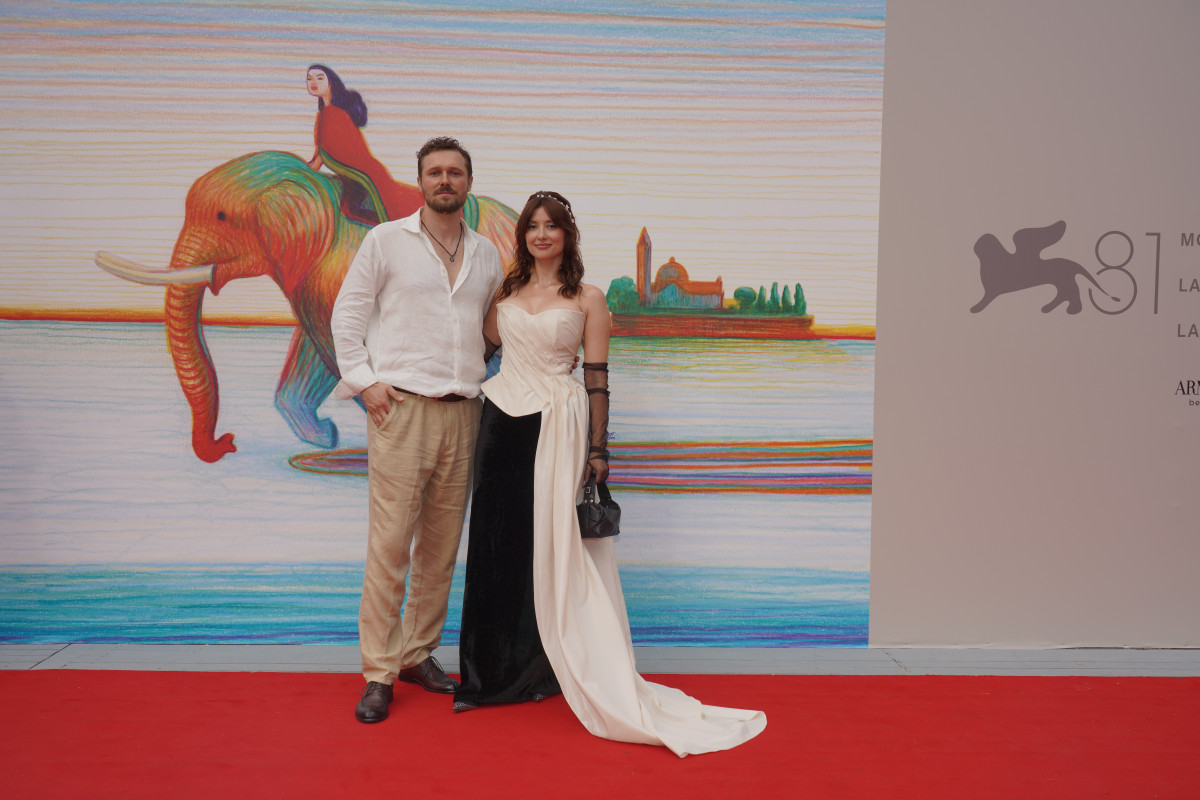
Do you think this film is more intended for a foreign or Ukrainian audience? How might their reaction differ?
Iryna: I think it performs the functions of export and import at the same time, it's just that the audiences are very different. This film is about us – it is understandable to Ukrainians and works with reflection.
For foreigners, it's more about surprise that there are people like them in Ukraine — in particular, intellectuals and artists. They don't know who we are, unless they have some interest in us.
Roman: It's for everyone. For the foreign one — so that there is an understanding that war is not only about combat operations. It is multi-layered.
The film is extremely necessary for Western audiences, so that Ukraine is associated primarily with people – with the same needs and desires. We must work with their empathy, and they must understand that Ukraine is about people and their destinies.
For us, this is a good reminder of the first shock of a full-scale invasion — when society grouped together. Like in Ivan Kotlyarevsky's “Aeneid” — when even plum stones were used to make bullets.
At the end of the film, the couple leaves the apartment. What do you think their fate is?
Iryna: Of course, I hope they were able to get out of the occupation. Olya lives in Kyiv, gave birth to a child with Taras, has an artistic practice, but perhaps also uses another medium. And Taras went to war — probably became a military psychologist. I think they are happy with each other.
Roman: I think they did the right thing when they dared to take a risk.


